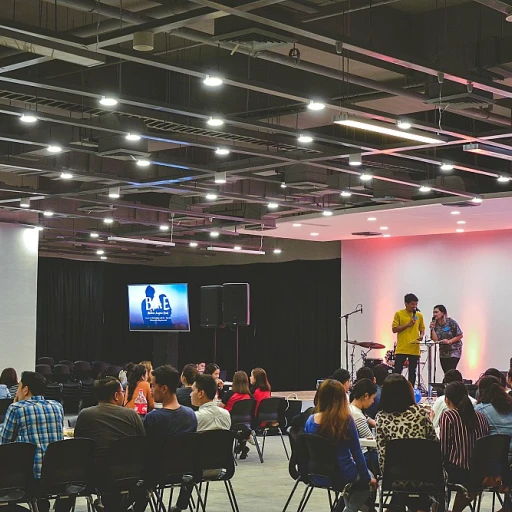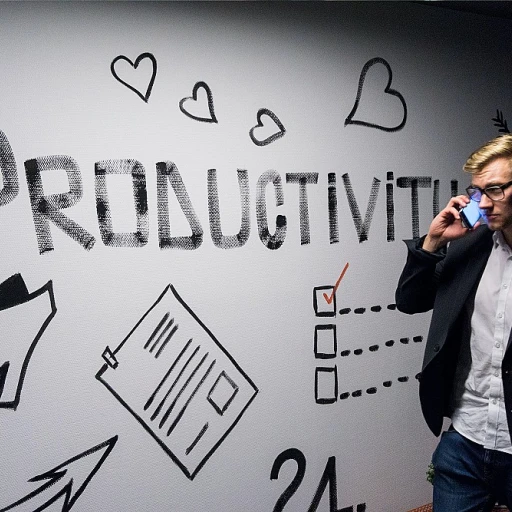
Understanding the DEI Candidate Experience
Exploring the DEI Candidate Journey
Creating an inclusive and positive candidate experience is crucial for attracting and retaining diverse talent. Understanding every aspect of Diversity, Equity, and Inclusion (DEI) in the candidate journey is essential in today's competitive job market. A strong DEI candidate experience not only benefits the candidates themselves but also enhances the overall recruitment process and reflects positively on the company's reputation. An inclusive recruitment process ensures that the company's hiring practices are designed to provide equal opportunities for all candidates, regardless of their background. This involves incorporating tools and strategies to minimize unconscious bias, from crafting well-considered job descriptions to setting up inclusive interview questions. Moreover, organizations need to be conscious of how their employer brand is perceived. Establishing a reputation as an inclusive workplace can play a crucial role in attracting top talent. This involves demonstrating diversity inclusion and promoting a culture of equity inclusion throughout the hiring process. Challenges might arise in ensuring a truly inclusive environment, but addressing these head-on is a key aspect of a robust DEI initiative. Awareness of biases and leveraging tools designed to help create an equitable candidate experience can make a substantial difference. For those looking to enhance employee engagement further, exploring affordable ways to boost employee engagement can be beneficial. Ultimately, a comprehensive DEI candidate experience is central not only to the recruitment process but to fostering a company culture that values diversity and promotes sustained inclusion and equity.Identifying High Potential Employees
Recognizing Future Leaders in the Workforce
Understanding who qualifies as a high potential employee is essential in building a robust and effective workforce. These individuals not only excel in their given roles but also display qualities that suggest they can grow into top talent within the organization. Identifying such candidates requires a strategic approach in the hiring and recruitment process. To spot high potential individuals, organizations need to consider a variety of attributes:- Performance Metrics: Consistently high performers in their current roles often signal strong potential. Performance indicators, however, must be free from bias to ensure a fair assessment of all employees.
- Leadership Qualities: Look for candidates who take initiative, exhibit problem-solving skills, and can lead teams effectively. Leadership potential should be a critical part of your talent acquisition strategy.
- Adaptability and Learning Agility: High potential employees demonstrate a keenness to learn and adapt. This is crucial in an ever-changing business environment where diverse talent must quickly respond to new challenges.
- Cultural Fit: Aligning with the company's values and culture is critical. A good fit often leads to better job satisfaction and retention rates.
Overcoming Bias in Assessing Potential
Bias, both conscious and unconscious, can significantly impact the identification of high potential employees. To build an inclusive workplace, it's vital to address these biases systematically.- Diverse Interview Panels: Having a variety of perspectives in the hiring process can help address bias. This diversity should also span across the company's job levels to reflect its commitment to diversity inclusion.
- Bias-Free Tools and Techniques: Implementing tools that help in making objective assessments ensures the selection process remains equitable. AI-driven assessments, for example, can offer insights while minimizing subjective judgment.
- Equity Inclusion Practices: Training for unconscious bias and ensuring that equity inclusion are more than just buzzwords in your organization can foster a more inclusive company culture.
Challenges in Creating an Inclusive Environment
Overcoming Barriers to a Truly Inclusive Workplace
Creating an inclusive environment poses significant challenges, particularly when it comes to nurturing high potential employees. The recruitment process should be free from bias to ensure that diverse talent is not only attracted, but also retained and developed within the company. However, diversity and inclusion efforts often encounter various hurdles. Organizations must contend with ingrained unconscious bias during hiring practices and interviews. These biases can skew the selection process, resulting in a less diverse workforce. Additionally, crafting job descriptions that genuinely reflect the organization's commitment to diversity and inclusion can be difficult. Employers often struggle to convey their values in a way that resonates with a wide range of candidates. Furthermore, the DEI candidate experience needs to stand out from the recruitment process. First impressions matter; a candidate’s journey from application to interview is a reflection of the company's culture. A positive experience can significantly improve the employer brand, attracting yet more diverse talent.Tackling DEI Challenges with Effective Tools
Organizations can benefit from adopting a variety of tools designed to mitigate these challenges. Leveraging advanced technology helps minimize bias throughout the hiring process. For instance, using AI-driven platforms can aid in the formulation of inclusive job descriptions and enhance the overall candidate experience. Employer branding on social media is another avenue to showcase the company's commitment to equity inclusion. This effort helps create an image of an inclusive workplace that values diversity. Moreover, consistent use of inclusive interview questions ensures that all candidates have an equitable opportunity to demonstrate their abilities. Lastly, fostering company culture that prioritizes diversity inclusion is critical. It resonates through every aspect of the organization, from leadership initiatives to everyday operations. By maintaining a strong focus on diversity, equity, and inclusion, businesses can support all employees, including those with high potential, in achieving their fullest potential. This commitment is essential for building a successful and sustainable organization in today's competitive market. For more insights on this topic, understanding the difference between an award and a reward for high potential employees can also enhance DEI efforts.Strategies for Improving DEI in Recruitment
Enhancing Diversity and Reducing Bias in the Hiring Process
Creating a truly inclusive candidate experience is crucial for attracting high potential employees. Yet, many organizations face challenges in implementing effective diversity, equity, and inclusion (DEI) initiatives throughout the hiring process. Here are some strategies that can help improve DEI in recruitment:- Craft Inclusive Job Descriptions: Begin by reviewing your job descriptions, ensuring they are free of biased language and appeal to a diverse audience. Inclusive language encourages applicants from various backgrounds to apply, fostering a more diverse talent pool.
- Utilize Diverse Hiring Practices: Incorporate diverse interview questions and panels to gauge a range of competencies and perspectives. This approach not only reduces unconscious bias but also makes candidates feel valued, regardless of their background.
- Leverage Technology and Tools: Implement recruitment tools that focus on minimizing bias during the candidate selection process. Tools employing AI can screen applicants based on skills and experience without subjective biases, helping organizations promote an equitable hiring process.
- Engage with Diverse Talent on Social Media: Use social media platforms to connect with diverse candidates. By showcasing your company's commitment to DEI and inclusive workplace initiatives, you position your organization as an attractive employer brand.
- Build an Inclusive Company Culture: Integrate diversity inclusion into the company culture, ensuring every candidate's recruitment and interview process experience is positive. This commitment to inclusion reflects your company's values and can be a differentiator for top talent considering multiple job offers.
The Role of Leadership in DEI Initiatives
The Influence of Leadership in Fostering DEI
In the journey of enhancing the DEI candidate experience, leaders play a pivotal role. They set the tone for diversity, equity, and inclusion within an organization, influencing hiring practices and shaping the overall recruitment process. An inclusive workplace that values diverse talent starts with leaders who are committed to DEI initiatives.
Leadership involvement in DEI efforts begins with understanding the current landscape of the candidate experience. Leaders should ensure that they are part of the conversation on diversity inclusion and are actively engaged in the recruitment process. This can range from participating in interviews to reviewing job descriptions to mitigate bias. Their direct involvement helps in addressing unconscious bias and ensuring equitable hiring practices.
Key Measures Leaders Can Take:
- Educate Themselves and Their Teams: Continuous learning about DEI, bias, and inclusion tools is critical. Leaders should undertake training sessions and workshops to enhance their knowledge and help their teams do the same.
- Promote Open Dialogue: Cultivating an environment where open discussions on diversity and the candidate experience are encouraged can lead to more innovative solutions and better candidate outcomes.
- Implement Diverse Hiring Panels: Encourage selection panels to reflect the diversity the company strives for. Diverse hiring teams help mitigate unconscious bias and bring varied perspectives to the hiring process.
- Develop Inclusive Policies: Policies should be evaluated and updated to reflect the organization’s commitment to diversity and equity inclusion. Inclusivity should be a thread woven through the entire process, from talent acquisition to onboarding.
- Leverage Social Media: Leaders should use platforms to reinforce their commitment to DEI, highlighting a diverse company culture and employer brand. This positions the organization as an attractive prospect for diverse candidates.
Ultimately, strong leadership in DEI doesn’t just enhance the candidate experience; it fosters a sense of belonging and commitment across the organization. Leaders who are actively involved can drive meaningful change and ensure that DEI is not just a box-ticking exercise, but a core part of the company's ethos, influencing recruitment processes and beyond.
Measuring Success in DEI Candidate Experience
Evaluating DEI Success Using Key Metrics
Measuring the success of diverse equity and inclusion (DEI) initiatives in the recruitment and hiring process is crucial for organizations aiming to create an inclusive candidate experience. Tracking specific metrics can help determine whether initiatives are effective and highlight areas in need of improvement.
To accurately assess DEI success, companies can focus on several important indicators:
- Diversity in Hiring: Evaluate the percentage of diverse talent within newly hired candidates. Comparing this data with previous hiring periods can illustrate progress in diversity recruitment efforts.
- Equity in Interviews: Monitor the fairness of interviews by analyzing outcome differences among diverse groups. Implementing tools to reduce unconscious bias in interview questions can further assure equity.
- Inclusive Candidate Experience Feedback: Gather feedback from candidates regarding their experience throughout the recruitment process. Surveys and focus groups provide valuable insights into how candidates perceive a company's culture of inclusion.
- Retention of Diverse Talent: Examining the retention rates of diverse employees once they join the organization can provide insight into the effectiveness of inclusive workplace initiatives.
- Representation Across Levels: Analyze diversity across different job levels to ensure representation isn't limited to entry-level positions. Ideally, diverse talent should be observable across mid-management and leadership roles as well.
By systematically tracking these metrics, organizations can better understand their DEI efforts and adjust their strategies accordingly. Accountability from leadership in supporting diversity, as well as transparency in communicating results, are essential to foster an equitable and inclusive company culture. Enhancing the overall DEI candidate experience is a continuous process, demanding constant commitment and adaptability to evolving best practices.













